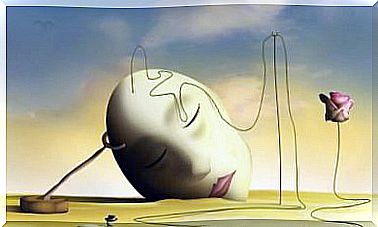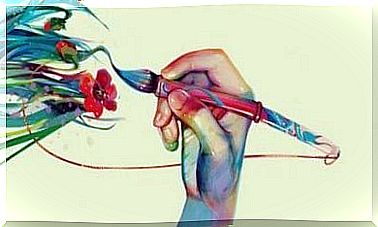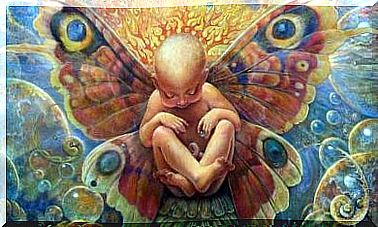Seven Properties Of Megalomaniacs

Do you know someone who is convinced that everything they say or think is grandiose? This person is probably a megalomaniac. Usually megalomaniacs belittle others because they feel superior. But, beyond their huge ego, how do you really identify a megalomaniac?
While it is common to find people who are proud of themselves, have great self-image and think they are capable of anything, it is not so easy to know for sure whether they are megalomaniacs or not.
But if those people have such high self-esteem and also belittle and hate everyone around them because they feel “superior”, that could be a sign that they are suffering from megalomania.
What is megalomania?
According to the DSM-V, megalomania is a delusional psychological disorder that occurs in patients suffering from a wide variety of psychiatric illnesses, including:
- 2/3 of patients with manic bipolar disorder
- Half of the patients with schizophrenia
- Patients with the grandiose subtype of a delusional disorder
- A substantial proportion of patients with substance abuse disorders.
To know whether a person is a megalomaniac as part of a disorder, psychologists pay attention to whether or not they have delusions and whether they have fantasies of power, relevance and omnipotence that lead them to think that they are the best.
Historical characters such as Napoleon Bonaparte, Hitler, Stalin or Mao Zedong are often attributed megalomaniac and narcissistic traits. It is even thought that these traits encouraged them to pursue the goal of ruling the entire world.

If you pay attention to the behavior of these leaders, you will realize that they all thought they were the only capable people in the world who could save their homeland and conquer other countries. They felt that their existence was necessary and therefore continued to search for infinite power.
Great leaders
Strangely enough, people who impulsively claim to be the greatest conquerors in the belief that they have absolute power experience more intense pathological symptoms because they feel responsible for and capable of the unattainable.
As history has shown time and again, megalomaniacs eventually become dangerous leaders willing to do the unthinkable to gain power.
A megalomaniac will not only believe that he is capable of doing what no one else can. This excess of responsibility will also make him inclined to blame himself for the consequences of his actions.
As you can see, megalomaniacs have an exaggerated self-image. They will try to gain a social validation, which they associate with a position of power. But even though they have a lot of confidence, they lack affection and feel empty and inferior inside.
Humanity
Despite this horror picture that is painted here, you have to keep in mind that this mainly refers to the great leaders like the above (eg Hitler, Stalin, etc.). However, these were and are not the only megalomaniac figures in the world.
Today they just walk around among us. You will probably encounter one or two in your entire life without realizing it. People with megalomania are still people. They are not pre-existing monsters.
The risk of dangerous behavior will increase under certain conditions, such as in the positions of power mentioned above, but in everyday life they are much more likely to go into life as normal citizens—with or without a somewhat distorted self-image.
Seven Habits of Megalomaniacs
Remember, too, that people are people – and people generally have a capacity to learn. When listing the properties below, we therefore assume that the individuals concerned are not aware of what is going on inside them and/or have not sought help for this – consciously or not.
- conceit. They believe they are essential.
- Megalomaniacs feel indestructible and capable of solving any problem that comes their way.
- They can be manipulative. Not all of them are, but leaders like the above can rise to power.
- Feelings of omnipotence. Often they put other people to the test to compare themselves and show that they are better than everyone else.
- They rarely admit their mistakes, so they never learn from them.
- An idealized self-image.
- Hyperawareness of people’s reaction to what they do or say. When people reject them, they think those people are the problem and not them.
- Vanity, supported by a strong ego that grows as a result of a feeling of superiority.

What is behind the personality of megalomaniacs?
Megalomaniacs often refuse to recognize that there is a fearful, self-conscious, and love-seeking person hidden deep within them. That is why they use confrontation as a defense mechanism.
On the other hand, due to their fear of being inferior, they ridicule anyone who makes them feel threatened and, as a result, harm anyone they think is a threat to their ego. However, there is an insecure person who feels inept behind that mask.
By trying to exaggerate their abilities and dramatize their achievements, megalomaniacs—without really wanting to—create a weak self-esteem and a scarce ability to face frustration.
Their arrogance can make them feel lonely because people just don’t accept them. Other times, they may actually isolate themselves. Their feelings of superiority can keep them away from anyone they consider inferior.
That loneliness leads to an unavoidable emotional void that can harm their well-being.









